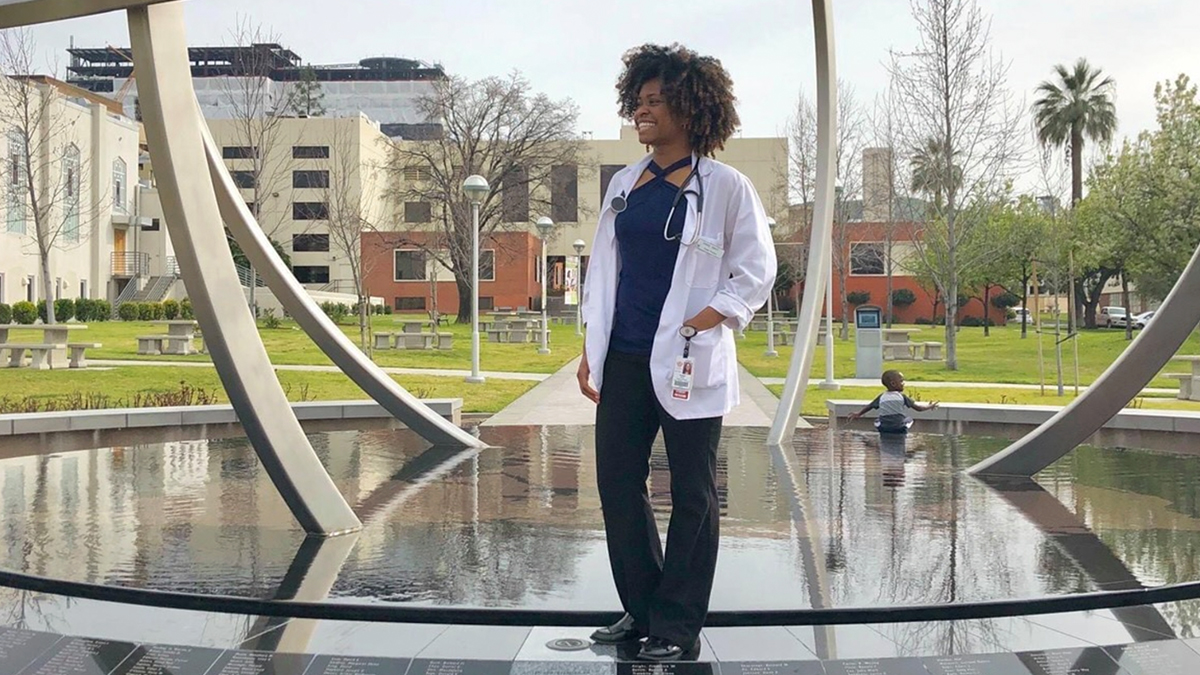Honoring an unsung legacy
Students enrolled in a course on Carolina's racial history discover that Wilson Caldwell is one of the most notable African-Americans in our University’s history.
When Kristen Marion and Elizabeth Brown began researching the life of Wilson Swain Caldwell, the two students had no idea they were piecing together the incredible journey of a Carolina trailblazer.
Marion and Brown are students in the “Civil War, Race and Memory at UNC” class taught by Jim Leloudis, professor of history. Leloudis, also associate dean for Honors Carolina, co-chair of the Task Force on UNC-Chapel Hill History and director of the Johnston Center for Undergraduate Excellence, designed the course to illuminate the campus’ racial history.
Caldwell played a major role in that history. Born into slavery on Feb. 27, 1841, he and his mother were owned by David Lowry Swain, who served as University president from 1835 to 1868.
“In his adolescent years, Caldwell lived with the Swain household, which brought him to work for the University for over 20 years,” said Marion, a junior majoring in public policy and music.
While a slave, Caldwell was a playmate and companion to Swain’s son. Treated as a member of the family, Caldwell learned to read and write.
“It was uncommon during that time for an enslaved person to receive that level of education,” said Brown, a senior majoring in public policy and economics. “The state did not have a solid education system, and those who were not rich or white did not receive the education they deserved.”
Caldwell served as a slave to President Swain and head janitor at the University before the Civil War. During the war, he was a key member of the president’s assembly that persuaded the Union Army not to burn down the campus when troops arrived in Chapel Hill.
Brown said having a prominent leader of the black community, who helped build the University, participate in those discussions helped ease the racial tension.
Following the Civil War and emancipation, Caldwell founded a school for African-Americans in Chapel Hill, served on the board of commissioners of Chapel Hill and bought more than 12 acres of land. North Carolina Gov. William Holden also appointed Caldwell as a justice of the peace.
“He must have had a real drive to accomplish all that he did,” Brown said.
Caldwell later returned to the University to serve as the head of the campus workforce and the curator of South Building until his death in 1898.
“From what we gathered in our research, the community had a lot of respect for him,” Marion said. “He was someone who a lot of people revered, which sounds strange given the historical context.”
“Some of our primary sources came from the personal papers collections in Wilson Library,” Brown said. “A lot of people wrote about their life in Chapel Hill during the Civil War, and if they wrote about the slaves, they almost always mentioned Wilson Caldwell.”
Inspired by their research, students in the class, including Marion and Brown, decided to collaborate with the campus chapter of the NAACP to celebrate Caldwell’s life on Feb. 27, his birthday.
“We figured his birthday is a great time to recognize his legacy and to honor him,” Brown said.
The celebration will take place from 6 p.m. to 8 p.m. and will include a candlelight vigil and brief discussion on slavery.
“Wilson Caldwell is one of the most notable African-Americans in our University’s history and should be acknowledged,” Marion said. “Calling him a trailblazer would definitely be an accurate description of who he was – he put in a lot of work physically and mentally for this University. Through all our research we can tell that he loved this place and the students.”
To see or learn more about the archival materials used in researching the life of Wilson Caldwell, contact the Wilson Special Collections Library.




